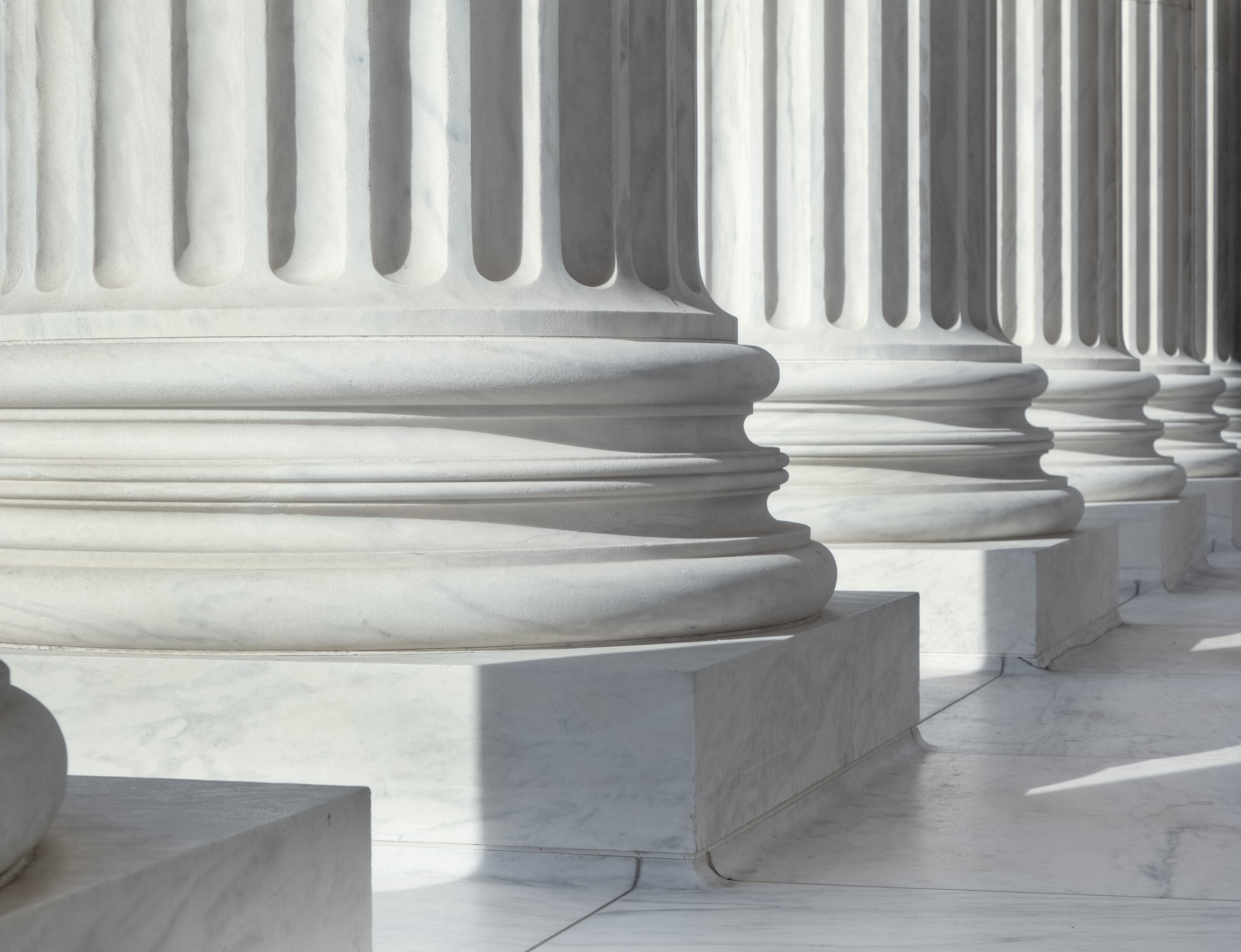Why Imposing Credit Card Interest Rate Caps Would Harm Millions Of Consumers

Policymakers in Congress continue to advocate for legislative proposals seeking to create an all-in annual percentage rate (APR) cap for credit cards, including Senator Josh Hawley (R-Mo.) who recently introduced legislation that would do just that by imposing government price controls on the world’s most competitive and reliable credit card marketplace. While imposing caps on credit card interest rates may sound appealing at the surface, the reality is that doing so would dramatically harm all cardholders – especially the lowest income Americans these measures are intended to help.
Here are the facts:
MYTH: Capping interest rates will expand access to credit.
FACT: Interest rate caps push cardholders to meet lending needs outside the well-regulated banking system.
Empirical data shows that rather than protecting consumers, interest rate caps harm borrowers with high debt burdens by reducing access to credit, which can increase loan defaults and limit access to emergency credit.
- When depository institutions cannot appropriately price risk, they cannot justify lending funds, and the amount of overall credit available in the market drops.
Eliminating lenders’ ability to prudently price loans for the risk involved will result in access to credit cards being limited to consumers who have high income and credit scores and pose little risk to card issuers.
- According to July 2023 study examining how the imposition of an interest rate cap affects consumers of rate caps in Missouri and Illinois: “binding interest rate caps create loan deserts for some loan amounts — there is demand but no supply.”
MYTH: Banks are charging sky-high credit card APRs to boost profits.
FACT: This is a fundamental misunderstanding of math, proving how an all-in APR is a flawed tool for measuring the true cost of a loan.
To maintain the safety and soundness of the lender and ensure credit availability for a wide range of consumers, banks must price their loan products commensurate with the risk associated with each borrower. Banks impose rates not only to calculate for risk, but also to recover a wide range of costs they incur to administer such credit, including not only costs of funds, but also expenses related to compliance, customer service, IT, underwriting, and more.
- Over the past year, the Federal Reserve has increased the Federal Funds rate by 525 basis points. This dramatic rate shift has led to the same increase in the PRIME rate, the metric used by many banks to determine the cost of administering credit. Just as inflation has driven up costs for consumers, the Federal Reserve’s continued increase in the Fed Funds rate to control inflation is a significant factor as to why some credit card APRs may be higher today than in a normal economic cycle.
As a result, consumers are better off with regulations focused on the dollar cost of the loan and flexible policies that allow for a range of loan options to suit consumers’ needs.
MYTH: Capping interest rates will help expand financial inclusion.
FACT: There is no evidence that APR caps make consumers better off or save them money.
Credit cards are the primary vehicles for financial inclusion in the United States – and are one of the most highly regulated financial products available.
- CFPB research shows that credit cards are, by far, the main way that “credit invisibles” become credit visible in the United States, allowing consumers at the margins to eventually qualify for auto loans, home loans, and other critical lending products.
Rate caps would force consumers to meet their needs through non-bank providers outside the well-regulated financial system. These outlets lack the federal oversight and protection standards consumers deserve and have come to expect from banks, which are subject to a wide range of consumer protections under the CARD Act, including determining cardholders’ ability to pay before offering credit.
- According to research from Pew, many consumers turn to payday loans when unable to meet their needs within the banking system. These venues can charge annual interest rates exceeding 300 percent.
These proposals would also impede innovative credit cards with non-credit features designed to attract underserved groups because even a nominal annual fee could result in an all-in rate that exceeds the cap.
MYTH: Imposing caps on interest rates would provide cardholders needed relief at a time when they are contending with rising economic headwinds.
FACT: Cardholders are already facing higher prices and reduced access to credit due to the CFPB’s separate, misguided interventions in the market.
The Consumer Financial Protection Bureau (CFPB) estimates that its proposal to lower the safe harbor for credit card late fees will cause APRs to rise by about two percent. According to the CFPB, “some consumers’ access to credit could fall if issuers could adequately offset lost fee revenue expected from them only by increasing APRs to a point at which a particular card is not viable, for example, because the APR exceeds applicable legal limits.”
- This means that cardholders – including the more than 50 percent of subprime cardholders that pay their bills on time – will face higher credit card bills and less access to credit because the CFPB wants to make it easier for the minority of cardholders that don’t pay their credit card bills on time.
What They’re Saying
Cato Institute’s Center for Monetary and Financial Alternatives Vice President and Director Norbert Michel:
“In the case of credit rate caps, it’s not hard to imagine that the highest income earners would suffer the least, while the lowest income earners—the people who most desperately need credit—would suffer the most. In the end, the rate caps would cause problems that provide additional pretense for more price controls and government intervention, both of which tend to further hinder the effectiveness of markets in the first place.”
Competitive Enterprise Institute Director of Finance Policy John Berlau:
“Senator Hawley’s proposal to put crippling price controls on consumers who use credit cards and the banks and credit unions that issue them should not be seen as ‘populist.’ Rather, the measure is an elitist attempt to substitute Hawley’s judgment of how much debt is appropriate in place of that of consumers weighing options for their families.”
Professor of Finance at Missouri State University Thomas Miller:
“People who make regulatory decisions on behalf of borrowers are likely well intentioned, but many do not understand how small-dollar installment loans can help borrowers who face difficult financial circumstances. In Illinois, we found that the immediate effect of a 36 percent interest rate cap was to deny much-needed credit. Academic research like this study is essential for creating well-informed and effective regulation. Responsible lawmakers must fully understand and accept that their actions have consequences for consumers.”
CBA Advocacy
CBA and seven other leading financial groups representing virtually all banks and credit unions sent a letter to Sen. Josh Hawley (R-Mo.) voicing opposition to the Capping Credit Card Interest Rates Act, a misguided proposal that would impose government price controls on credit cards and effectively harm the very people the legislation seeks to protect. You can read the letter HERE.
CBA has encouraged lawmakers to conduct an extensive and thorough study of any proposal for a nationwide binding interest rate cap before being considered by Congress and take into account the negative consequences for individual borrowers and families. To learn more, click HERE.
In July 2021, CBA General Counsel and Senior Vice President David Pommerehn testified before the U.S. Senate Banking Committee on the impact new caps on interest rates would have on consumers’ access to credit. You can read his testimony HERE.
Ahead of the U.S. Senate Banking Committee’s 2021 hearing, CBA and other leading financial groups sent a letter to U.S. Senate Banking Committee, urging Congress to oppose any fee and interest rate cap legislation. You can read the letter HERE.



